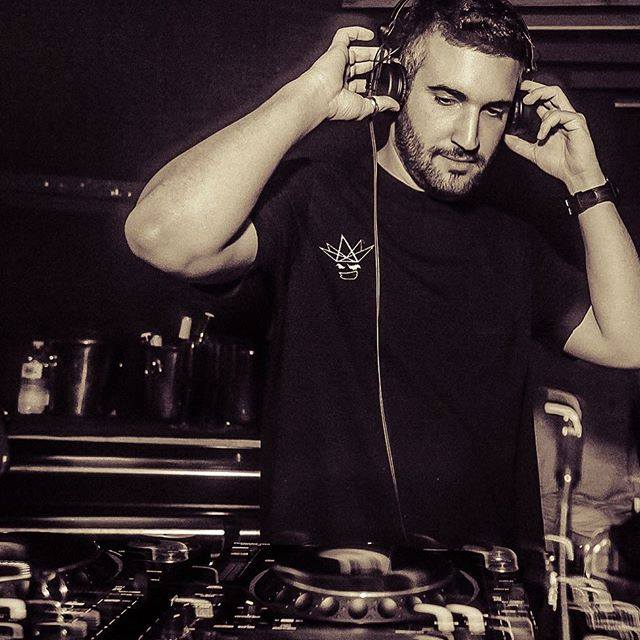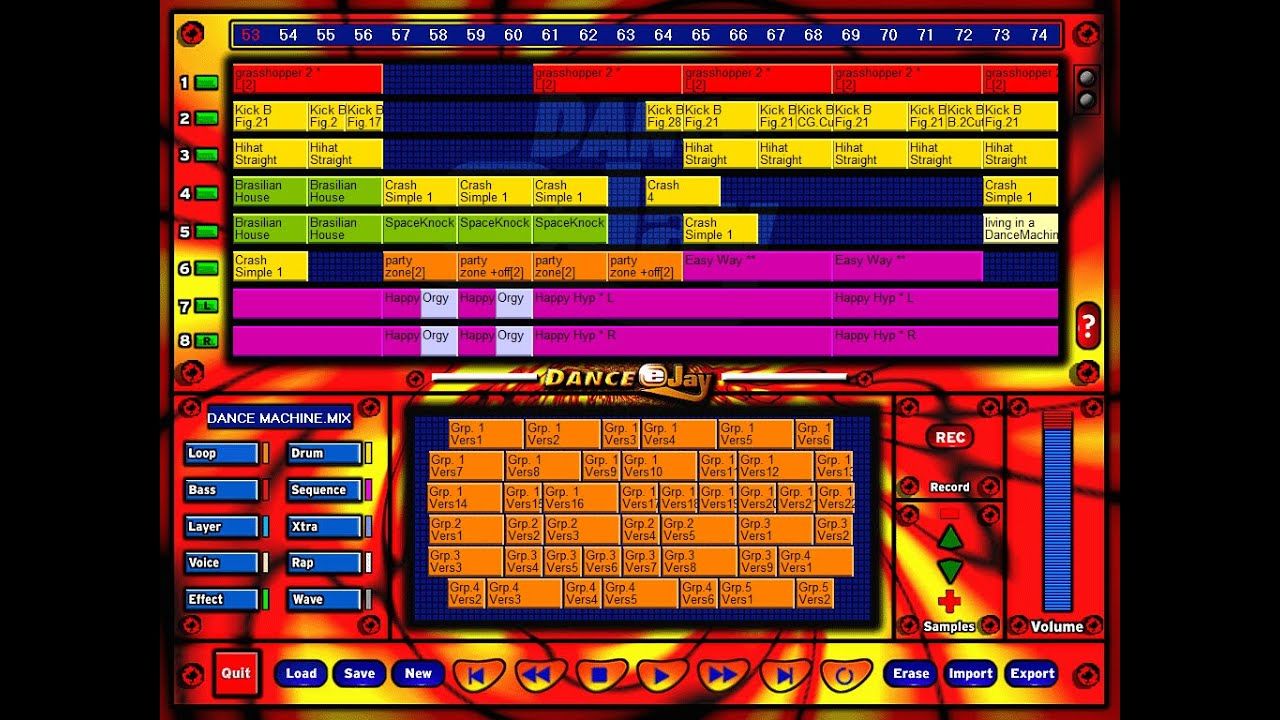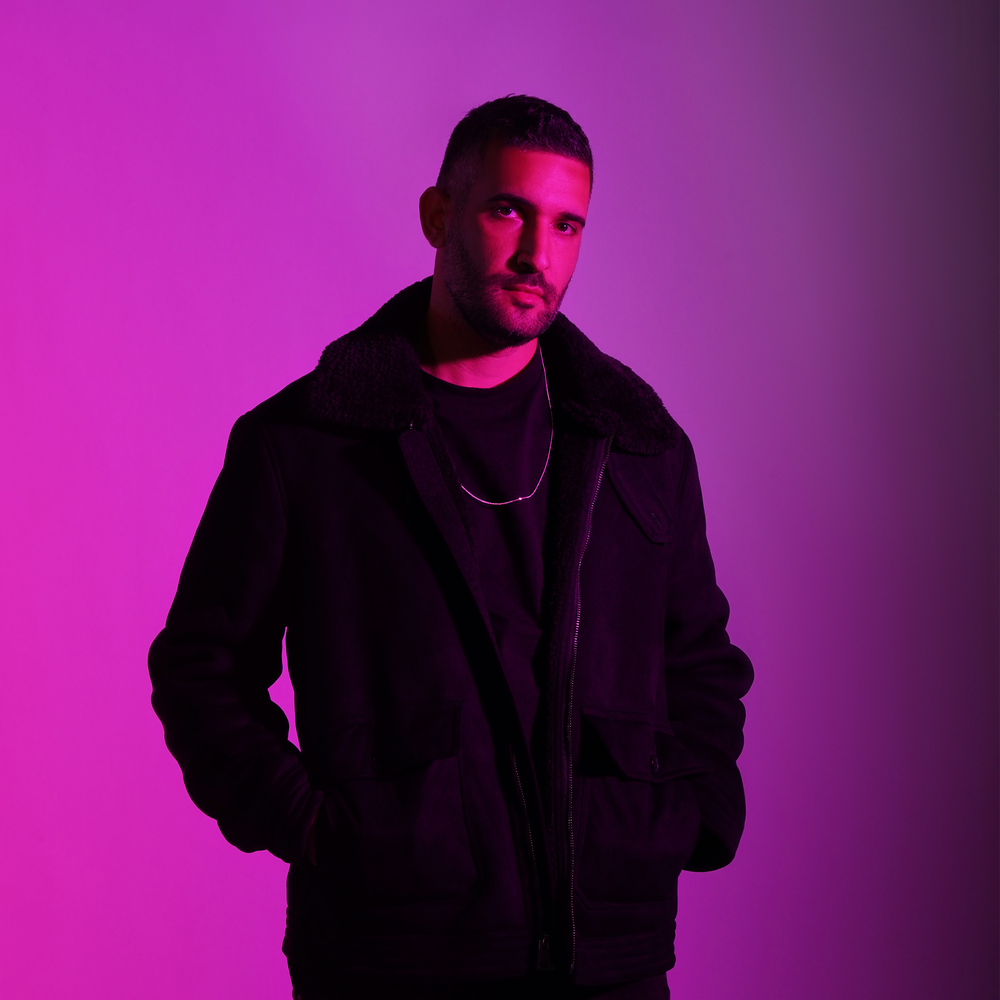What's up everybody, it's Jake T. from Minimal Audio and we are back with another entry into our blog. This week I was given the immense honor of speaking with an icon in the dance music community. I got to sit down with none other than Maor Levi, one of the most legendary DJs to grace the planet. Signed to Anjunabeats at only 15 years old Maor Levi has been a global phenomenon for almost 20 years. Through his myriad aliases, Maor has proved himself as a prolific artist and generational talent. With releases on labels that vary from Anjunabeats, Armada, Spinnin Records, and even OWSLA. It is no exaggeration to say his stature is near mythical in certain circles of dance music. Together we spoke about Fuse Compressor, his process when he sits down to make a track, and how he first got involved in music making!
Minimal Audio: Well first off congratulations on the Shift EP, that thing bangs
Maor Levi: Thank you
MA: Been having so much fun listening to it this past week
MA: Minimal Audio just launched Fuse Compressor, have you had a chance to play with it yet?
Maor Levi: Yeah I did! Actually, I’m playing with it as we speak. I have this project I’m working on right now, but there are a lot of plugins so my computer is struggling (haha) I’ve been testing it on some bassline, and it’s been fantastic so far. I’m very very happy,
MA: What are some of your favorite parts of the plugin?
Maor Levi: I think it’s just the fact that you have so much control over everything. Once you have something with multi-band capabilities then it’s already a great start, and I like to have a lot of control when it comes to compressors. I like to do a lot of sound design, so it's an incredible way of controlling things and getting creative at the same time
MA: Have you gotten into any of Minimal Audio’s other plugins?
Maor Levi: I remember when I first heard about your company through Rift, I was messaging whoever was on your ig acct at the time I think it was Griffin, and I basically told him “Hey guys I don’t know who you are, but everything looks really cool and I need this in my life” and that’s where the relationship started. At first, I got one of your free plugins Feedback Lite and then I got the actual Rift, and I said Okay this is really cool. I like where this company is going.
I was very happy with how creative it is, and how you have a really simple approach in the GUI, and that you can then go in depth with. I think it's the GUI alone that was attractive to me and then after messing around with it, it was fantastic!
MA: I love that, that's sweet to hear, Rift is one of my favorite plugins so I always love hearing positive feedback like that.
MA: I was watching this interview with you and you were saying while you were writing Reflect that you wrote a lot of the melodies for it by singing them into your phone. Is that still a part of your process?
Maor Levi: Yeah I still do that! It’s a lot more accessible with voice memos on the iPhone. Back in the day I only had a Sony Erickson phone, and I wasn’t really in the studio that much. So I had ideas, but I didn’t really have a computer in front of me to translate it. So I just had to hum it into my phone. And I mean that's what I do with a lot of things. I have a condenser mic here, and sometimes I still prefer my iPhone. I have my phone on me all the time, so I treat it as a field recorder almost. I record birds with it, I record noises and I use them later. I think the iPhone is an instrument. I think the new one has a really really good mic, so it’s really accessible and that’s really cool.
MA: Awesome! Yeah, I agree. I think it was the iPhone 13 that I first noticed it having panning and it blew my mind.
Maor Levi: Yeah exactly! That’s what I mean. I had the 13, I still think it’s the best phone. I have the 14 now, and I hate it. Even the new MacBook, the microphone on it has such a large dynamic range, it’s insane. It’s really impressive, and you know for me. I treat the iPhone microphone, this RODE condenser microphone the microphone on my computer, imagine it's a preamp. It has its own character you run things through it and it translates very differently from each other. It colors the sound, and for me it's useful. Everything is useful.
MA: Chuckles Totally
Maor Levi: That's a sound designer’s approach for you! Everything is useful!
MA: Can you give us an insight into your process? Do you find any commonalities in the way you start your sessions?
Maor Levi: Yeah I feel like every producer has them. At some point when you work for so long and you kind of develop your way of working then you have your ways of starting things. I can definitely say that I’ve changed over the years. Especially changing equipment and changing software. But I still have a similar approach to what I’ve always had. I would like to always have a melody or some kind of hook that I like to work around. But for me and I’m sure if you heard my EP then you know that for me it mostly revolves around bass lines. I think that’s my joy, it’s something I really enjoy making even more than melodies. I’ll admit I’m not a big melodic guy. I like heavy drops and bass faces.
But for me, it's mostly like if I have a decent melody and those chords are enough. Then I’ll start focusing on the bassline. And then according to the bassline, I’ll see how I feel about what the melodic part or the hook will be. If this is gonna be a hard track or a melodic track. To your question though. I’ll always start with the melody and then revolve around that. Or sometimes, the bass line is so good that the melody just doesn’t matter anymore. But it’s these two for sure.
MA: Do you feel like you prioritize the process or the product?
Maor Levi: Oh that's a really good question; it's hard for me to answer. But I feel like it kind of goes together. You have to enjoy the process in order to not even release, but just export a product that you like. If you’re just exporting it for the sake of it, and you’re just suffering the whole time. Then there’s no quality control, right? I think those things go hand in hand. But for me overall and to everyone else, I think the final product is ultimately what matters.

MA: What do you look for in your performances? What makes you get off the stage, and think you crushed it?
Maor Levi: Over the years I’ve changed what I play, and how I play. I’m not the DJ that will just play the top 100 or what people expect to hear, or whatever stuff is hot right now. I try to make it more like it's a producer’s set, so for me, it’s nerve-wracking. Because you’re playing just your own records and remixes. And sometimes it involves playing unreleased records that no one’s heard before, and you don't know how people are gonna react to it. But if I manage to make people stay for 2 hours straight dancing, to my own tracks, even the new ones that no one knows, then that's when I feel that I crushed it.
It's very nerve-wracking for me, to even go on stage and be like, okay, I'm going to play just my own stuff because I have so much music and, you know, hopefully, people will show up or people will like it. I don't know.
MA: I feel like Chasing Love will still bang in a club
Maor Levi: You know what? I'll be honest with you right now. I don't even know where trance stands... I mean, it's tough in my opinion, from what I'm hearing and seeing, it's a very tough time for the scene. So playing those kinds of records, man, I don't know, I feel like these days you have to kind of play it safe, play what people want to hear and not what you think they want to hear.
So it makes you think, Oh, what am I going to play then? You know, well, should I just kind of fit into it to do whatever people want? Or should I just be true to myself?
MA: Do you find yourself kind of navigating that line a lot of like, am I still being true to myself, but I'm still giving people something that they can hook into or?
Maor Levi: I think over the past few years, I was very persistent when it comes to my sound and how much I believed in it.
But I'm not saying, you know, okay, this is what I have to give you, you know. If you're a record label, this is what I’ll give you and this is what I want you to take. You know, I can't just, just do that because labels will be like, well, you're signing it to our label. So we have some suggestions because we're going to release it.
Sometimes labels do give you good feedback and it's good to take another point of view. But, sometimes you're just stubborn and you're like, no I like it the way it is. I don't need to change anything. But sometimes, yeah, sure if there's like little tweaks here and there, I don't mind.
If it's something that I don't think affects the main elements of the song, then sure, I will agree. But sometimes I'm very stubborn. I really believe in myself. And I'm not sure if it's a good thing because then there's the chance your track won't get signed.
You also depend on record labels. So it's a slippery slope.
The bottom line is you have to learn how to be flexible sometimes, but not to a point where the label tells you like, Oh, okay. You know, this is really good. But can you delete this and that and change the whole part of the song and whatever, you know?
MA: It's cool that you stand your ground too.
Maor Levi: I know, but I mean, trust me, if it was my label, then sure, I would release it, whatever. But sometimes, you know, when you work with other labels, it is what it is, you have to be flexible. But you can't be too flexible to the point where your song is losing the purpose of why you sent it to that label in the first place.
MA: For sure. Yeah, that makes a lot of sense.
Maor Levi: I would say drastic changes, like, Oh, can you change the melody? Oh, can you change this vocal? Then you're like, okay, well, might as well just delete it and start over.
MA: What made you start your journey into music?
Maor Levi: It was random. I never had any musical, like, theory or history in my family. My parents never told me oh, go learn piano, go learn guitar. I was playing video games. That's all I cared about. And one day when I was like 10 or 11, My friend, was the very first friend in our friend group that had an internet connection in his place. So he invited me one day. He's like, Oh, you have to come over and check this out.
I downloaded electronic music. And, back in the day, you know, as kids, electronic music, especially here in Israel, was very frowned upon as it's music for adults. 18 plus. And when I'm saying electronic music, I mean, like psychedelic trance, goa trance, drug music, you know?
So if you're listening to this kind of music at such a young age, it’s like, oh, what are you doing? You know, we're like two rebels and we listen to that music secretly. So he downloaded a bunch of tracks from Infected Mushroom. And then he showed me DJ Tiesto when I was just 11. And then I was just hooked.
I was like, what is this music? I've never heard anything like that before in my life. And, the next thing you know, my friend got this DAW. I'm sure you probably know it. If you make music, then you know that it's called eJay. Have you ever heard of eJay? Dance eJay?
MA:laughs No, I haven't.

Maor Levi: Oh, bro. Google it later and you'll see what I'm talking about. Everything is pre-made and all you have to do is drag and drop into the arrangement. And for me, that was the first glimpse of how to make music. Even though I wasn't making anything, I was just putting blocks on top of each other.
But, after that, I was very intrigued by it. So I taught myself how to do it. I had an internet connection when I was like 13 and my parents got me a new computer for my birthday. And all I wanted was to learn how to produce. But I know I can't ask my parents to sign me up for school or private lessons and stuff. So I'll just have to do it myself. And my English was really bad and there was no YouTube, so all I had were these, like, long PDF files with a bunch of pictures. And I couldn't read anything, I just had to look at the pictures and kind of do what they do in the pictures and figure it out myself.
And I did, and then I got signed to Anjunabeats when I was only 15. And I'm 35 now.
MA: Wow
Maor Levi: It's a long, crazy story
MA: As you kind of get further into your career, what's keeping you hungry? What's keeping you inspired?
Maor Levi: You know what I feel like I was, I was very uninspired for the past year. I moved from PC to Mac. And after I moved to Mac, a lot of things that I used to do on the PC just didn't work. FL Studio. This was my first ever DAW, and I switched about a year ago just because I needed a change and perhaps try a different approach to get motivated again.
So how do I get inspired again? Because all those computer errors and technical difficulties demotivated me to even turn on my computer and want to do something. Shift EP was the last EP I wrote in FL Studio. I still use FL Studio sometimes as it's still the GOAT in my book, it is just very different than other DAWs so the approach is always unexpected and interesting.
Everything after that is brand new. I'm on Bitwig now and Bitwig is amazing. when I started using Bitwig and I realized how crazy this DAW is, I was instantly inspired because I was like, okay, this is something new, finally, something interesting that is challenging and fun at the same. So yeah, the bottom line, changing DAWs gave me a challenge and approach to get creative and do things differently than what I'm used to.
My workflow is smooth again. That's what gets me inspired. It's just like everything is quick, you know? I like to do things quickly. I have a lot of templates that I make, and a lot of channel strips that I keep. If I have something cool that I make, I instantly just bounce it. And then if I have a channel strip, I'll save it. And that's it.
I feel like for me, the best way to get inspired and, you know, keep everything flowing is, is also a very organized workflow. So you have a template, you know, how everything works for you and you stick to that. Eventually, you mastered that way of working and everything is just breezy.
And, I feel like when everything is breezy, then you're instantly inspired when everything just works.
MA: I was listening to Let You Go the other day off of Shift, and I was thinking, like, this is so crazy because you have this artist right at two different poles of their career, but there’s still so much throughline and it still sounds like you, so I was wondering what do you feel like has stayed the same in your productions?
What do you want to keep in your art? And then what do you feel like you've refined out of it?
Maor Levi: Well, I mean I feel like the only thing that kind of changed with me. As we spoke earlier, the workflow is very similar to what I've always done. So I feel like it's kind of like a muscle memory It's like if you wake up every morning and go to work You do the same thing and you just do it because you're just living that way, you know That's the same way for me with music I mean, I don't think about how am I going to approach a track It just kind of happens.
But, I think the biggest, you know shift is my mixdown approach. The compositional part of everything is still very, similar. And I feel like it's just a bit more high-tech when it comes to, like, new plugins, new tools, new ways of doing things.
I guess it's also a matter of the style of sounds you're using, and how you use them. And for me, those things are kind of engraved in my brain to a point where it's like I'm in automatic mode. I just do it because that's what I know. And maybe it's because I'm self-taught and I don't really have any musical theory. So I just kind of do things how I taught myself to do them. I'm sure maybe if I had some knowledge in playing instruments and such; I would approach it differently at this point, but I still haven't learned to play any instruments. I just kind of do everything by ear.
I feel like this might be a factor in why you develop a signature sound. So aside from the mixdown and, I guess kind of trying to be more modern sounding. The similarities and the little elements and things are still the same because I'm programmed to do that at this point.
Especially if you're making the same genre for so long and, you see feedback from people and they love it, then why change completely, you know, you can change when it comes to like maybe the rhythm or the kick and bass or whatever, but you still have those elements that are like, ah, it's this guy. I know this guy. I know that little sound. It's him for sure.
MA: That’s so interesting, I’ve never thought about it like that before. Well thanks for sitting down with me, I really appreciate it.
Maor Levi: Yeah, I really appreciate you guys! Thanks for letting me try all this cool gear!
And there you have it! I want to take this opportunity to thank Maor, for taking the time to sit down with me. Check out Shift EP here, and if you want to have total control over your sounds with a one of a kind creative multi-band compressor then you can purchase Fuse Compressor here! Alternatively follow the buttons below!
Check back soon for another riveting entry in the world of Minimal Audio!
Until then keep creating!


